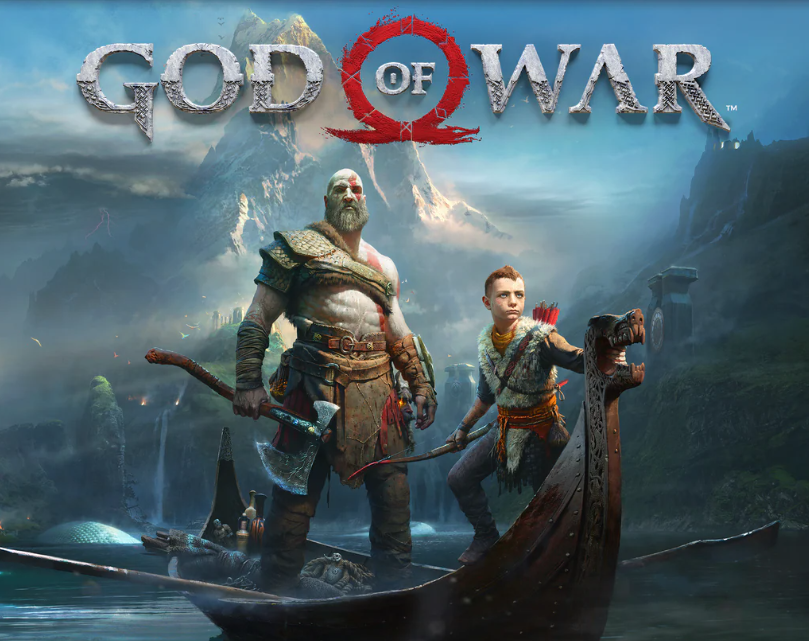Danial, Week 10: Lust for Power
The hit PlayStation video game franchise God of War by Santa Monica Studio tells the story of Kratos, a warrior and captain of a battalion in the Spartan army.
In an intense, extremely one-sided battle, Kratos calls upon the Greek god Ares to prevent the complete obliteration of his battalion. After granting him his requested power by fusing his arms with the blades of chaos, Kratos goes on a murderous rampage, killing anyone standing in his way. Achieving victory for Sparta, Kratos is manipulated by Ares and continues his rampage, eventually leading him to an ancient temple where he brutally eliminates the temple’s worshippers. Blinded by his rage, he unknowingly murders his own wife and daughter. After realizing he was deceived, Kratos is consumed by extreme depression and is overrun with a desire for revenge.
Kratos avenges his family by killing Ares and takes his title as the God of War. Fearing that his son would overthrow him, Zeus turns Olympus against him and murders Kratos. After escaping the Underworld, Kratos goes on another rampage and obliterates every God in the Greek Pantheon, wiping out the entire world in the process.
Kratos’ story teaches us how a lust for power can consume an individual and hurt loved ones around them. While obviously our mistakes won’t cause the destruction of our universe, we can learn from Kratos’ story through the imprisonment he undergoes as he’s consumed by a desire for power. Throughout the God of War games, Kratos is consistently disheartened and emotionally impacted by the atrocities he has committed in his past. Driven by a desire to sustain their power, both Kratos and Zeus are stuck in an endless cycle, imprisoning them by the repercussions of their horrible actions which have shattered their relationships with all loved ones.
After destroying Olympus, Kratos escapes to Midgard where he starts a new life and starts a new family. While grappling with the consequences of his past, Kratos grows his bond with his son, teaching him how to control and prevent his power from overtaking him. Eventually, Kratos even begins using his blades of chaos again, symbolizing his acceptance and growth from his past. Kratos’ journey through fatherhood and redemption from his past proves all individuals are capable of profound transformations. God of War’s themes extend beyond the game, reminding us all individuals have complex stories and imparting empathy within the audience.

Hey Danial,
ReplyDeleteI really like how you connect a video game with a real, applicable lesson. Growing up, I played God of War III for the sense of adventure and excitement it gave me. I never really thought about Kratos as a man consumed by power, simply an angry and hurt man. After reading your blog, I realize that Kratos's story is one that warns players about the harm that lust for power can have on a person. The lust of power can take various forms such as money, fame, or weapons. As you said, it may not have the ability to destroy the world, but it can destroy a person. In a way, Kratos was reborn after his power hungry natured was quelled by the destruction he caused. Thank you for writing this blog!
Hi, Danial. First of all, I would like to mention that the introduction was interesting. The story-telling in the short summary of the game made the introduction more engaging. In addition, the relatively detailed recap of the God of War franchise allowed the reader to understand the context while also setting up your analysis. As shown in the sentence “God of War’s themes extend beyond the game, reminding us all individuals have complex stories and imparting empathy within the audience,” the thematic analysis of the lore of God of War added depth by including the parallels of the game and the real world. Overall, the engaging example and analytical nature of the blog made it better resonate with the readers.
ReplyDeleteI agree that the more power one has, the more one wants power. A great example of this is money. Back in the 1800s, John D. Rockefeller was an oil tycoon, with his net worth at nearly 1% of the entire United States wealth. When asked, "How much money is enough," Rockefeller famously replied, "Just one more dollar." This dynamic represents a greed that occurs as one accumulates wealth, as people become greedier the more, they have. The nature of this "lust for power" is not always apparent, unlike other sins. For instance, if you are assaulting someone, you are conscious of your wrongdoing. Greed, however, appears as a need for financial stability. You are not greedy; you just want more money to be comfortable and stable. Yet comparative to most the world, we, as residents in Fremont, are already extremely wealthy. Power makes us yearn for more, creating a downward cycle - it is much harder to donate 5% of your wealth is you were a billionaire. Your blog pointed correlations between the God of War video game and our infinite appetite for power and was well written.
ReplyDelete